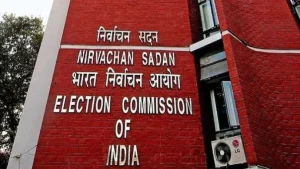In any democracy, elections are the heartbeat of governance, allowing citizens to choose their representatives and shape their nation’s future.
In India, the world’s largest democracy, overseeing this enormous responsibility is the Election Commission of India (ECI).
Established to ensure free, fair, and transparent elections, the Election Commission plays a critical role in preserving the democratic fabric of the nation.
From managing voter registration to monitoring political campaigns and ensuring adherence to election laws, the Commission’s influence is deeply felt at every level of governance.
Understanding the powers and responsibilities of the Election Commission of India gives us insight into how this vital institution maintains electoral integrity and fosters trust in the democratic process.
Let’s explore how the ECI functions, what authority it wields, and why it remains indispensable to India’s democracy.
What Is the Election Commission of India?

The Election Commission of India is an autonomous constitutional authority tasked with administering election processes in India.
It was established on January 25, 1950, a date now celebrated as National Voters’ Day.
The ECI ensures the conduct of elections to:
-
The Lok Sabha (House of the People)
-
The Rajya Sabha (Council of States)
-
State Legislative Assemblies
-
State Legislative Councils
-
The offices of the President and Vice-President of India
The Commission operates independently of government control, reinforcing the credibility and fairness of elections.
Composition of the Election Commission
Initially, the Election Commission had only one Chief Election Commissioner.
Since 1989, however, it has functioned as a multi-member body comprising:
-
Chief Election Commissioner (CEC)
-
Two Election Commissioners
All members are appointed by the President of India and have equal decision-making powers.
They enjoy protection under the Constitution, ensuring they can function without political pressure.
Powers of the Election Commission of India
The ECI wields extensive powers to ensure impartial elections, including:
1. Administrative Powers
-
Prepares and updates electoral rolls.
-
Organizes the entire electoral process, from nominations to the counting of votes.
-
Deploys security forces to maintain law and order during elections.
2. Advisory Powers
-
Advises the President and Governors on disqualifications of legislators.
-
Recommends rules for the conduct of elections.
3. Quasi-Judicial Powers
-
Settles disputes related to the recognition of political parties.
-
Allocates election symbols to political parties.
-
Has the authority to disqualify candidates for corrupt practices or electoral misconduct.
4. Enforcement Powers
-
Monitors election campaigns for violations like hate speech, misuse of government resources, and paid news.
-
Enforces the Model Code of Conduct during election periods.
-
Can cancel or postpone elections in cases of rigging, violence, or booth capturing.
Responsibilities of the Election Commission
The responsibilities of the ECI are not just administrative but extend to preserving democratic values:
Conducting Free and Fair Elections

The ECI ensures elections are conducted in a transparent, impartial, and orderly manner.
It employs measures like electronic voting machines (EVMs), voter-verifiable paper audit trails (VVPATs), and randomization of election staff to reduce fraud.
Ensuring Voter Awareness
Through initiatives like Systematic Voters’ Education and Electoral Participation (SVEEP), the ECI educates citizens about the electoral process and the importance of voting.
Maintaining Electoral Integrity
The ECI works to prevent electoral malpractices such as bribery, intimidation, and bogus voting.
Strict adherence to the Model Code of Conduct during campaigns ensures a level playing field for all parties.
Innovation and Modernization
The Commission continuously innovates by adopting new technologies like online voter registration, mobile apps for complaints, and real-time election result updates.
Challenges Faced by the Election Commission
Despite its extensive powers, the ECI faces several challenges:
-
Rising political polarization and misinformation.
-
Increasing instances of money power and muscle power influencing elections.
-
Managing elections in geographically vast and diverse regions.
Strengthening the Election Commission’s autonomy and ensuring greater transparency in political funding are critical to addressing these challenges.


